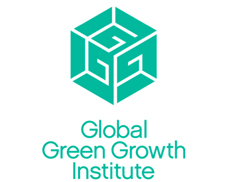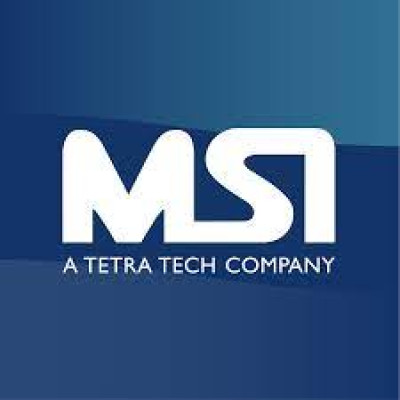Details
Description
The UNDP Seoul Policy Centre (USPC), established in 2011, represents UNDP in the Republic of Korea (ROK), works with the ROK on international development priorities, and shares development experience and technical expertise of the ROK with other countries. USPC works as a facilitator of innovative development cooperation for the achievement of the SDGs in four thematic areas of i) development cooperation modalities and approaches, ii) governance and gender, iii) green recovery and transition, and iv) private sector engagement and development.
Building on the unique development experience of the ROK and UNDP’s wide Global Policy Network, USPC facilitates knowledge exchanges of SDG-enabling development solutions in the above-mentioned thematic areas through its signature ‘SDG Partnership’ country-support programme and other initiatives, and brokers partnerships between the ROK and other countries to help tackle development challenges.
The SDG Partnership on engagement of non-state development actors, as specified in USPC’s triennial programme (2020-2022), aims to build the capacity of the private sector and civil society, as defined in the SDG targets 17.6 and 17.7, and to systematically deploy their core competencies to address development challenges across the globe in ways that are sustainable from economic, social and environmental standpoints. The SDG Partnership deploys the knowledge of these non-state development actors in various subject areas for concrete use in development projects that have a high probability of sustainable implementation at country level.
USPC’s private sector engagement and development work aims to further the engagement with the Korean private sector – including MSMEs, social enterprises, youth-led start-ups, investors, and related institutions to seek or develop innovative methods to implement the SDGs on the ground. Notably, USPC is spearheading the Youth Co:Lab Korea programme to build the capacity of innovative startups from around the Asia-Pacific region who constitute key private sector actors that have the potential to contribute to the achievement of the SDGs. The Centre works collaboratively with other parts of UNDP and UN agencies, NGOs, and the public and private sector to advance youth entrepreneurship and social innovation in the Asia-Pacific region via initiatives to boost entrepreneurship and related policies, notably through the regional Youth Co:Lab initiative which aims to tackle the challenges young people, including the most marginalized, face today in the region. USPC will bring together relevant stakeholders and entrepreneurs to develop social entrepreneurship in the country and the region, leverage the impact and potential of frontier technologies and innovative solutions, as well as the implications of private-public partnerships for SDG implementation.
The Youth Entrepreneurship Policy and Partnership Analyst will support the above aspects of the Centre’s work covering the entrepreneurship and policy development portfolio within the global development agenda. This portfolio covers a broad range of engagement targets including a variety of private sector actors (e.g. startups, small/micro social enterprises, investors), the public sector, and civil society (e.g. NGO, academia, youth). The work also requires advocacy and outreach skills to facilitate awareness-raising of and partnership-building with non-state development actors for SDG implementation.
The Youth Entrepreneurship Policy and Partnership Analyst will report to the Communication & Partnerships Specialist, while under the overall supervision of the Director of the UNDP Seoul Policy Centre. The NPSA will work in close partnership with regional public and private stakeholders and other UNDP units from the Asia-Pacific region including the Youth Co:Lab network.
Facilitate regional knowledge exchange on private sector development, namely social entrepreneurship promotion and startup support policies and practices, by engaging both private and public sector entities to share their experiences, resources and know-how with developing countries.
- Perform a situational analysis and mapping of potential partners in the social entrepreneurship and startup ecosystem in Korea and partner countries from around the region.
- Conduct background research on national and global policies, strategies and coordination frameworks that provide strategic direction and advice to policymakers.
- Facilitate consultations with various public and private stakeholders to identify the policies and practices that help create an environment conducive to innovation through entrepreneurship.
- Support all aspects of the organization of regional knowledge-sharing events (e.g. policy dialogues, thematic workshops, webinars)
- Support the production of knowledge products and analytical pieces to facilitate the exchange of best practices and lessons learned.
Facilitate the operation of the Youth Co:Lab Korea programme, through inputs to the conceptualization and implementation of a workplan and coordination of partnerships with private and public sector entities from around the Asia-Pacific:
- Engage in the conceptualization and planning of the activities of Youth Co:Lab Korea in coordination with the regional Youth Co:Lab network and partner institutions.
- Act as focal point and coordinator of all Youth Co:Lab Korea activities and events (e.g. startup challenge, networking initiatives, capacity building sessions) in collaboration with regional partner institutions, and play representation role in related events (including regional/sub-regional events for regional resource mobilization).
- Support the Youth Co:Lab Korea initiative on day-to-day implementation, such as administrative and logistical support, preparation of outreach/communication/partnerships materials (PPTs, partnerships briefings, brochures, reports, web notes, press releases, social media).
- Monitor and evaluate the programme impact, through coordination with the regional Youth Co:Lab initiative.
- Perform other functions as may be assigned by USPC consistent with qualifications and experience.
Competencies:
Core competencies:
- Achieve Results: LEVEL 1: Plans and monitors own work, pays attention to details, delivers quality work by deadline.
- Think Innovatively: LEVEL 1: Open to creative ideas/known risks, is pragmatic problem solver, makes improvements.
- Learn Continuously: LEVEL 1: Open minded and curious, shares knowledge, learns from mistakes, asks for feedback.
- Adapt with Agility: LEVEL 1: Adapts to change, constructively handles ambiguity/uncertainty, is flexible.
- Act with Determination: LEVEL 1: Shows drive and motivation, able to deliver calmly in face of adversity, confident.
- Engage and Partner: LEVEL 1: Demonstrates compassion/understanding towards others, forms positive relationships.
- Enable Diversity and Inclusion: LEVEL 1: Appreciate/respect differences, aware of unconscious bias, confront discrimination.
Cross-Functional & Technical competencies:
Business Management (Cross-functional)
- Partnerships Management: Ability to build and maintain partnerships with wide networks of stakeholders, Governments, civil society and private sector partners, experts and others in line with UNDP strategy and policies.
- Communication: Ability to communicate in a clear, concise and unambiguous manner both through written and verbal communication; to tailor messages and choose communication methods depending on the audience
- Results-based Management: Ability to manage programmes and projects with a focus at improved performance and demonstrable results
External Relations & Advocacy - General (across the functions)
- Public relations: Ability to build and maintain an overall positive public image for the organization, its mandate and its brand, while ensuring that individual campaigns and other communications and advocacy initiatives are supported in reaching the public
General (across the functions)
- Event planning and execution: Ability to plan, manage and execute of public and private events to ensure that they support and amplify individual communications and advocacy initiatives, as well as UNDP's overall brand and mandate.
Partnership management
- Emerging partnerships: Ability to engage with emerging partners, develop and manage a strategy and develop approaches to developing and managing these new strategic partnerships.
Business Direction & Strategy
- System Thinking: Ability to use objective problem analysis and judgement to understand how interrelated elements coexist within an overall process or system, and to consider how altering one element can impact on other parts of the system.
- Advanced University degree (master’s degree or equivalent) in the social sciences, international development, international relations, social development, business administration, marketing or other relevant subject is required. OR
- A first-level university degree (bachelor’s degree) in combination with an additional two years of qualifying experience will be given due consideration in lieu of the advanced university degree.
- Min. years of relevant Work experience Minimum 2 years (with Master’s degree) or 4 years (with Bachelor’s degree) of experience supporting programmes related to social entrepreneurship, innovation, and impact making in the Korean and Asia-Pacific regional context
- Experience in the use of computers and office software packages (MS Word, Excel, etc) and advanced knowledge of web-based management systems such as ERP.
- Experience collaborating with/working in international organizations, and with the private sector and entrepreneurship ecosystem, is an asset.
- Excellent communication, interpersonal and liaison skills/experience with government, inter-governmental agencies, UN system and international and regional development partners, academic institutions, civil society organizations, private sector and other relevant institutions.
- Successful experience in international/regional event management.
- Demonstrated capacity to write clear and well-constructed reports and process documents.
- Experience in the usage of computers, office software packages, and social media.
Required Languages:
- English and Korean.





